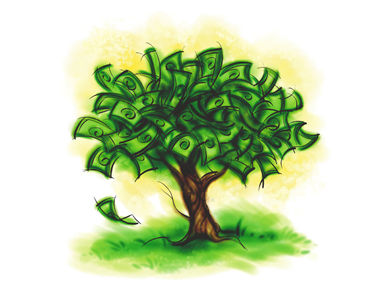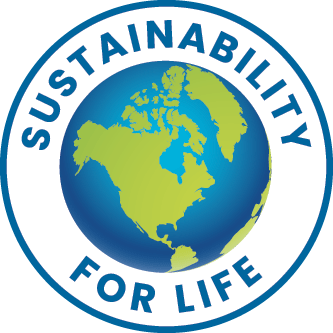
Value From Water Reservoirs – Solar Farms

"Water Reservoir – Solar Farm installations will become as valuable as oil-fields.”
H. William Clark
sustainabilityforlife.com
Note: Communicating this information as news to others is free of charge. 4
Follow this link for a printable .PDF version of this information
Introduction
This is both an environmental and a financial issue.
This document includes:

The Issue is the Oil and Gas (Fossil Fuel)
- For over 100 years, oil and gas have provided the energy for the state and national economy to grow.
- The production and refining of oil and gas has provided millions of jobs and economic benefit.
- Beginning in year 2000 (and earlier), we know that the carbon from the burning of fossil fuels is harming the atmosphere, creating global warming. (1)
- Already, global temperatures have risen several degrees F, with a 5-9 deg F rise predicted across the 21st Century (dangerous, deadly, heat).


Carbon to Atmosphere from Fossil Fuels is Destroying the Environment of the Planet Earth (1)
- Many experts have predicted global warming is responsible for:
- This predictions are now obviously coming true.

Global Warming is a Threat to the Financial Health of Texas and America
- Texas citizens (and other Americans) are spending billions of dollars recovering from the increasing number and intensity of disasters.
- The 2020 pandemic alone will cost the United States over 16 trillion dollars in economic loss (5), and possibly cost Texas over 400 billion dollars.
- The benefit from fossil fuels is an illusion, because the economic losses now far exceed the original benefit.
- How can Texas citizens and businesses (and A&M former students everywhere) continue paying taxes and donating to higher education if a large portion of their financial resources are consumed with disaster recovery?
- With this new reality, what is a wise course of action for Texas and the PUF?

Fossil Fuel
- The production and sale of oil and gas (or coal) is now clearly a threat to human survival on the Planet Earth. (3)
- Clearly, a solution must be found quickly. The human race is running out of time.
- ALL United States organizations should be creatively addressing this enormous challenge.

Water Resource Assets
- Within a few decades, in 2/3 of the land area of Texas which receives low rainfall amounts, water could approach the value of oil.
- $2+ billion, plus capital from other Texas sources, could be invested in new water resources and reservoirs.
- Massive new reservoirs 30-40+ feet deep and thousands of acres big, could be built to retain a significant amount of the rainwater that falls in key locations around Texas, and especially in East Texas. This may require new land acquisition.
- New pipelines and large pumps driven by solar electricity could be installed to pump the water from east Texas to south, central and north Texas areas needing water for farming and ranching (and municipal use). This water would generate millions of dollars in annual income.
- Environmental clean-up of contaminants in the water must be built into the system.

Water Resources and Solar – A Powerful Combination
- The combination of large water reservoirs with solar farms is a golden opportunity.
- Many solar farms exist today that float over reservoir and lake water. This design greatly reduces water loss due to evaporation and generates electricity at the same time. A Win-Win ! (7)
- Such new sustainable assets could generate millions of dollars per year in income for the PUF and AUF.

Why Sustainable Assets for Texas is a Better Idea
- The U.S. consumption of oil and gas will greatly shrink over the next 15 years. The known environmental damage, lower cost electric vehicles and lower cost solar electricity will drive this trend.
- Income derived from oil and gas changes greatly as the price of oil swings from $25 to $80 per barrel. This does not help high-level financial planning.
- Sustainable assets can generate consistent (and increasing) income for decades in the future, with smaller swings in income.
- This is not an emotional decision, this is cold, hard cash.

Sustainable Assets Will Attract Billions in New Economic Activity
- The potential for this new economic growth over the next 15 years is in the tens of billions of dollars, far greater than the shrinking opportunities from fossil-fuel.
- As visible and successful renewable-sustainable projects are completed in Texas, interest from large technology companies will grow.
- The commitment to the future will be obvious, and this will help attract new technology projects.
- Staying with archaic and destructive fossil-fuel assets just discourages this new technology growth.
- The recent announcement of a new battery-electric truck manufacturing facility near Austin is one example of new growth worth billions in economic activity.

Citations
- https://sustainabilityforlife.com website, The Danger and Solutions pages.
- CBS News, MoneyWatch, October 13, 2020, Coronavirus pandemic to cost Americans $16 trillion, study finds.
- Time Magazine, World, Environment, January 16, 2020, The Reason Fossil Fuel Companies Are Finally Reckoning With Climate Change.
- Texas Water Journal, Volume 10, 2019, Floating Solar: An Emerging Opportunity at the Energy-Water Nexus
- H. William Clark, born in America, resides in Texas
